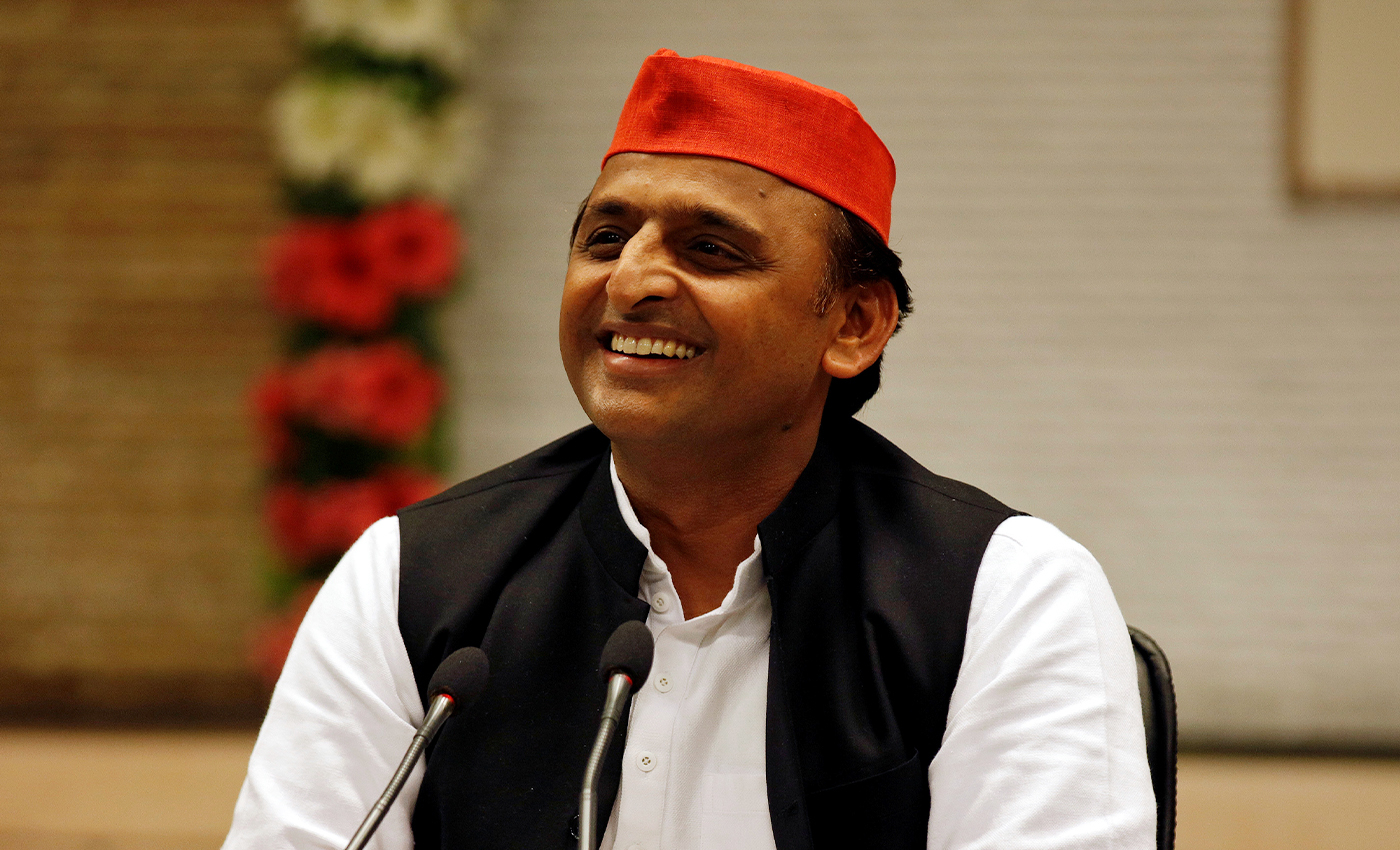Public Pulse: Samajwadi Party’s Stunning Victory Sparks Waves of Reaction Across Uttar Pradesh

Sidra Fatima, TwoCircles.net
Lucknow: The political landscape of Uttar Pradesh has taken a dramatic turn, with the Samajwadi Party (SP) surging ahead of the ruling Bharatiya Janata Party (BJP). Defying expectations, the SP has taken over in a state where the BJP dominated the last two terms. This unexpected twist has set the state abuzz with reactions, putting the saffron party’s ambitious yet faltering “Abki Baar, 400 Paar” pledge in the spotlight.
Despite the Ram Mandir narrative, the BJP couldn’t secure a win in Faizabad (the Lok Sabha constituency of Ayodhya where Prime Minister Narendra Modi’s helicopter unveiled the grandeur of the temple ahead of elections). The SP, on the other hand, won 37 seats on its own — surpassing the BJP by four, while the INDIA coalition collectively outperformed the NDA.
The BJP’s loss in Faizabad sends a strong message: politics based on “hatred” and “division” is retreating in Uttar Pradesh. The electorate’s demand for development and inclusive governance is rising. Despite its rhetoric on consolidating Hindu votes, the BJP could not save the seat in Faizabad — the district where Ayodhya is located.
This defeat indicates that voters are more concerned with material issues such as employment, health and education, rather than religious and symbolic issues.
“It is a major upset for the BJP, which many had expected to win the elections with flying colours. The SP’s sharp-edged campaigning and widespread use of social media have paid great dividends. With the SP again in the top position in UP, it will undoubtedly benefit in the upcoming state elections. It is a big win,” said Hamza Ahmad, a resident of Uttar Pradesh’s Moradabad district.
Lucknow-based journalist Syed Ali Haider echoed similar sentiments. “To defeat the BJP, a party needs a strong cadre — which the saffron party has. However, the SP effectively challenged this in this election. The BJP’s biggest mistake was underestimating Akhilesh Yadav (SP chief) and downplaying his role in the 2022 election,” he told TwoCircles.net.
In Uttar Pradesh, Dalit votes, alongside those of other marginalised groups, have been moving to the SP not out of loyalty but due to a lack of credible alternatives to counter the BJP, according to Anshul Kumar, a master’s student at Delhi’s prestigious Jawaharlal Nehru University (JNU).
“This marks both the end of independent Dalit politics and an interesting beginning. Dalit votes, along with some from the most backward classes, shifted to the SP not out of allegiance but because they had no other option to tackle the BJP.”
“I voted for change, not just slogans. The SP victory shows that our vote matters, and it’s high time our voices are heard. UP showed the BJP that we are not just vote banks; we are people who can think for ourselves,” stated 24-year-old Priyal, a Dalit activist based in Bareilly district.
Social media was also flooded with reactions, with people expressing their excitement and amazement at the SP’s performance. Many condemned the BJP for its ambitious “400 paar” pledge, while others pointed out the party’s failure to win votes despite the Ram Mandir campaign.
“Even the Ram Mandir of Ayodhya could not unite the Hindus; they got divided into castes. Uttar Pradesh surprised everyone,” one Radhika Chaudhary wrote on microblogging site X (formerly Twitter).
Election Campaign Strategies
“The SP’s campaign focused on issues of public interest like employment, healthcare and education. People rejected the divisive agenda that the BJP is promoting,” said Javed, a social activist from the Students’ Federation of India (SFI) based in Delhi.
Eliya Zaidi, an engineer from Lucknow, remarked, “People are tired of BJP’s hate politics. Elections in UP are majorly held on caste lines, and the SP understood this well and played along. This is where the BJP fell behind. This trend in UP has made the BJP very nervous.”
Ateek Ahmad, a student activist, explained how strategically and adeptly the SP handled various issues in the state, capitalising on issues such as examination paper leaks, unemployment and other concerns of students. Akhilesh Yadav’s slogan of ‘PDA (wherein ‘P’ stands for pichda or backward classes, ‘D’ for Dalits and ‘A’ for Alpsankhyak or minorities) will defeat NDA’ resonated strongly. This was reflected in his selection of candidates from marginalised communities and new faces, including women.
“The SP had already created a wave in Uttar Pradesh, which was further enhanced by the strategic alliance with the Congress party. Rahul Gandhi entered this election with a vision for change. This election proved that the BJP’s divisive agenda of temples, mosques and religion only works sometimes. The loss of key figures like Smriti Irani (former Union minister) shows that BJP leaders’ stature has been jolted, and the voters’ mindset has shifted,” added Ahmad, a student of Jamia Millia Islamia.
Future Implications
While the BJP won the Lok Sabha elections, the polls have emerged as a game-changer in the Indian political landscape. The unexpected success of the SP testifies to the dynamic and unpredictable nature of voter sentiment in Uttar Pradesh.
The BJP’s debacle, especially in rural areas, underscores the need for the party to rework its strategies and address immediate issues of concern for the electorate. The SP’s solid campaign, based on pragmatic issues and effective use of social media, sets a benchmark for future political campaigns in the state.
This election has significantly altered the political landscape in the state, and its reverberations will be felt in the next state elections and beyond.
